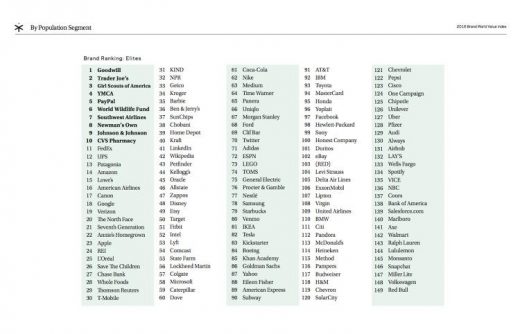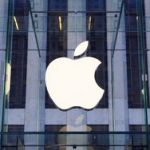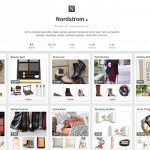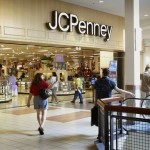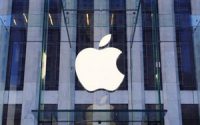The Brands That Do The Most And Least Good For The World–Ranked By Consumers
A company’s shareholder value doesn’t necessarily reflect its value to the wider world: how useful its products are, the good it does for people, how much it tries to minimize social and environmental harm. With that in mind, a new survey asked people to rank companies for their perceived “purpose”—the extent to which they stand for something other than making money.
Enso, a marketing agency, commissioned the survey which asked 3,000 people how they perceived the “world value” of 149 well-known organizations, from Disney to United Airlines (some non-profits were also included). The results are quite different from traditional brand valuations, like Fortune‘s Most Valuable Brands research, which focus on financial value to the exclusion of other considerations.
“People’s perception of the value of a brand are more important than ever,” says Brian Hardwick, who led the research. “We were interested in how people perceive the impact of brands, and, if there is a gap between their impact and how people are perceiving it, whether there’s an opportunity for brands to close that.”
Goodwill, the charity group, tops the ranking, followed by Amazon, Google, Kellogg’s, and PayPal. At the other end are Marlboro, Monsanto, Red Bull, and Goldman Sachs. The surprise is to see several brands known for their purpose well down the list. Patagonia is 87th place. Unilever, a multi-brand conglomerate with impressive environmental performance, is in 116th. Airbnb, a leader in the sharing economy, is in 142nd place.
Hardwick says this could be because these companies serve relatively small segments of the market. “Airbnb and Uber are newer brands that probably don’t have that familiarity outside of coastal cities. Patagonia has been around for a long time, but it’s better known among a wealthier subset of people.” Patagonia is in 13th place among what Enso calls an “elite” group of consumers: those with a household income of more than $100,000 and at least a college education. Charities also appear to rank higher with the rich.
Amazon’s top ranking comes despite its reputation for hard-nosed business practice. “Amazon was a real surprise to us,” Hardwick says. “They are less purposeful in their communications. But people see a huge value in what they’re doing for them in convenience and making their lives easier.”
The survey shows that millennials and generation Z have significantly different impressions of companies than older groups. For example, they rank Twitter and Uber respectively 58 and 42 places above their main ranking. At the same time, they rank old-line giants like IBM, Procter & Gamble and Hewlett-Packard substantially lower than do older people.
“Studies show how skeptical millennials are about big institutions,” says Sebastian Buck, Enso’s co-founder. “Those brands have some work to do in their actions and what they say to demonstrate to this new generation that they’re also interested in creating big impact.”
See more from the survey here.
Related Video: The Girl Scout’s Evolving Brand
Goodwill, Amazon, and Google top the Brand World Rankings survey, which asked 3,000 consumers how they perceived each company’s “world value.”
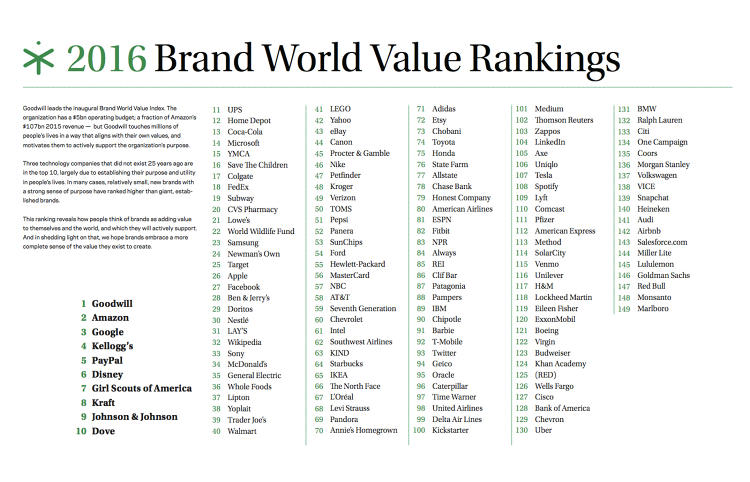
Millennials and Generation Z voted Amazon, Google, and Disney as the top three brands.
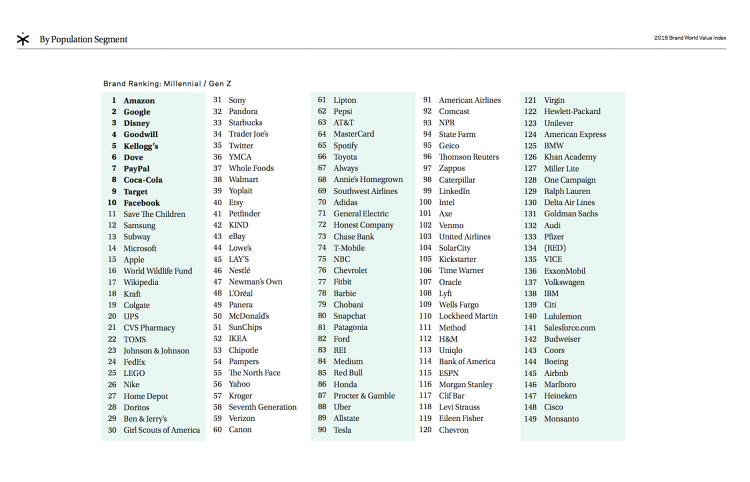
“Elites,” or those making more than $100,000, were more likely to take notice of non-profits and less likely to take notice of Amazon (ranked 13).
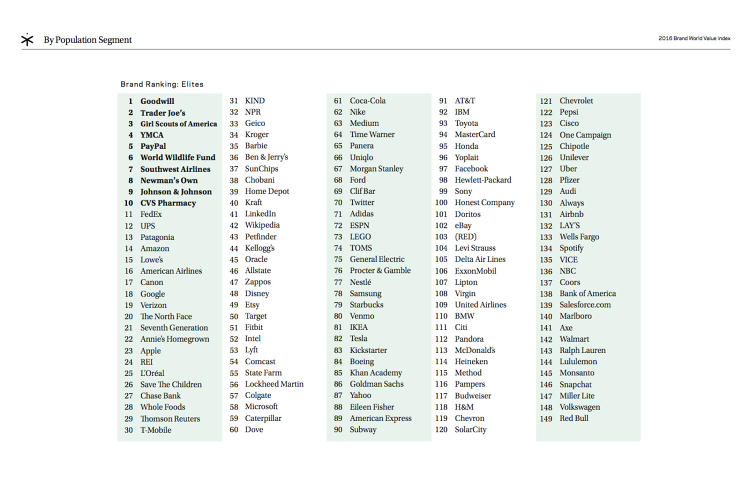
Generation X and Baby Boomers also put Goodwill, Amazon, and Google at the top.
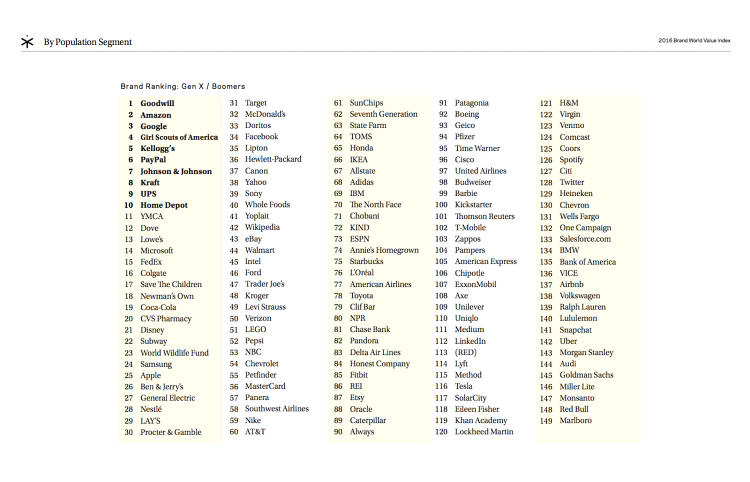
For better or worse, young people perceived these brands, including Uber, Red Bull, Levi’s, and Ford, very differently than older cohorts.
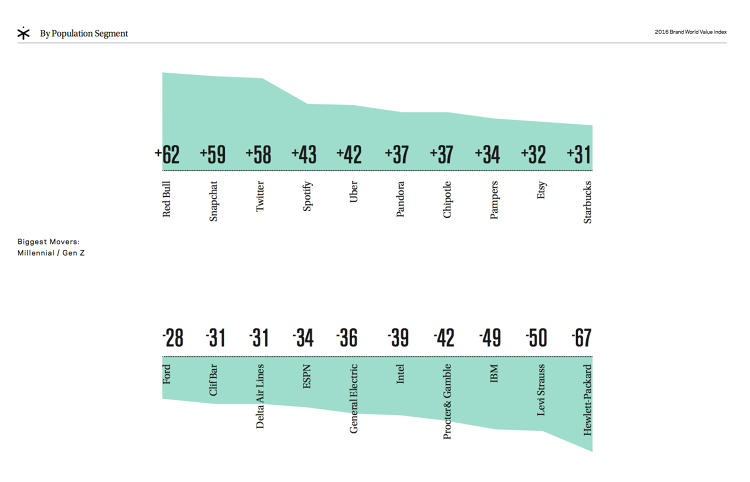
Fast Company , Read Full Story
(87)

